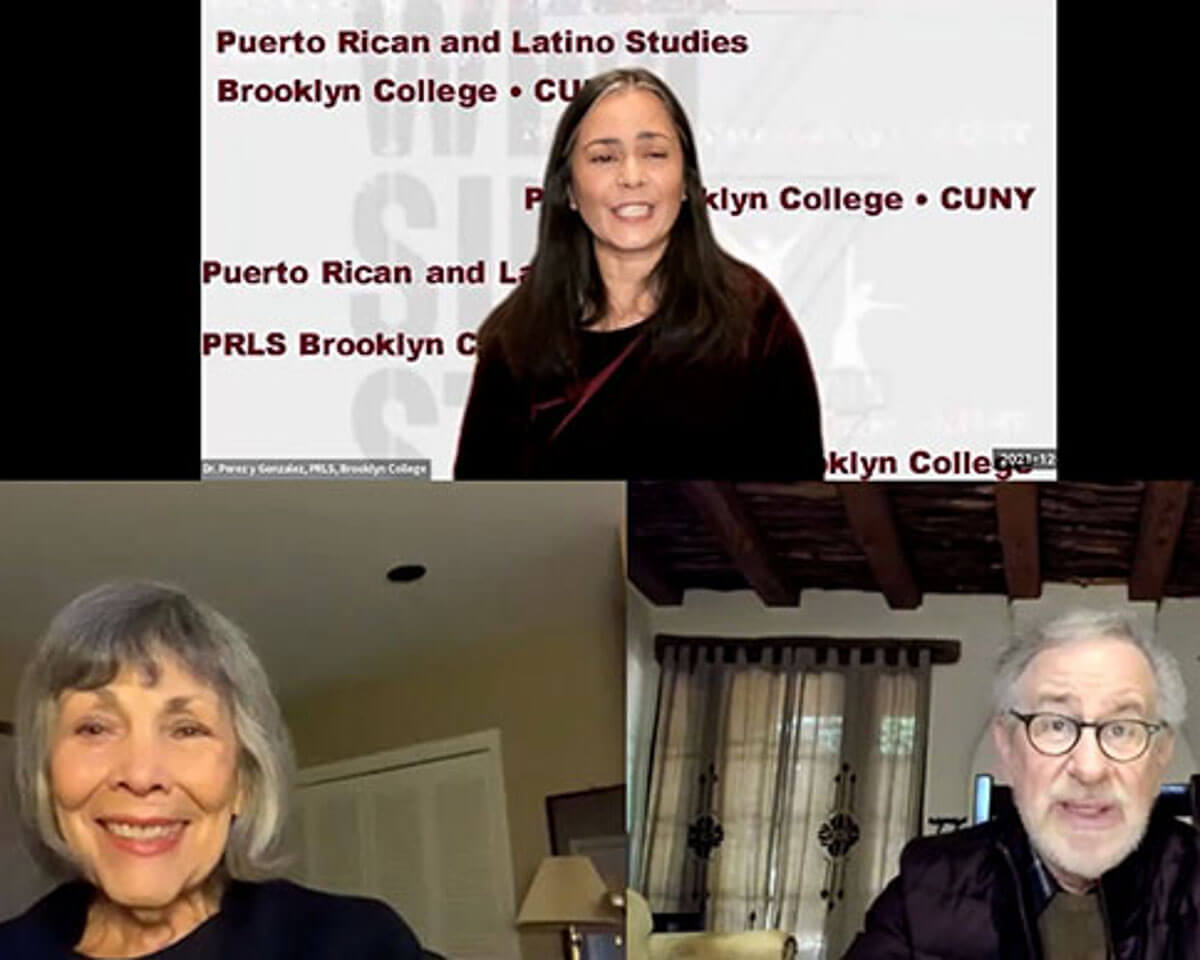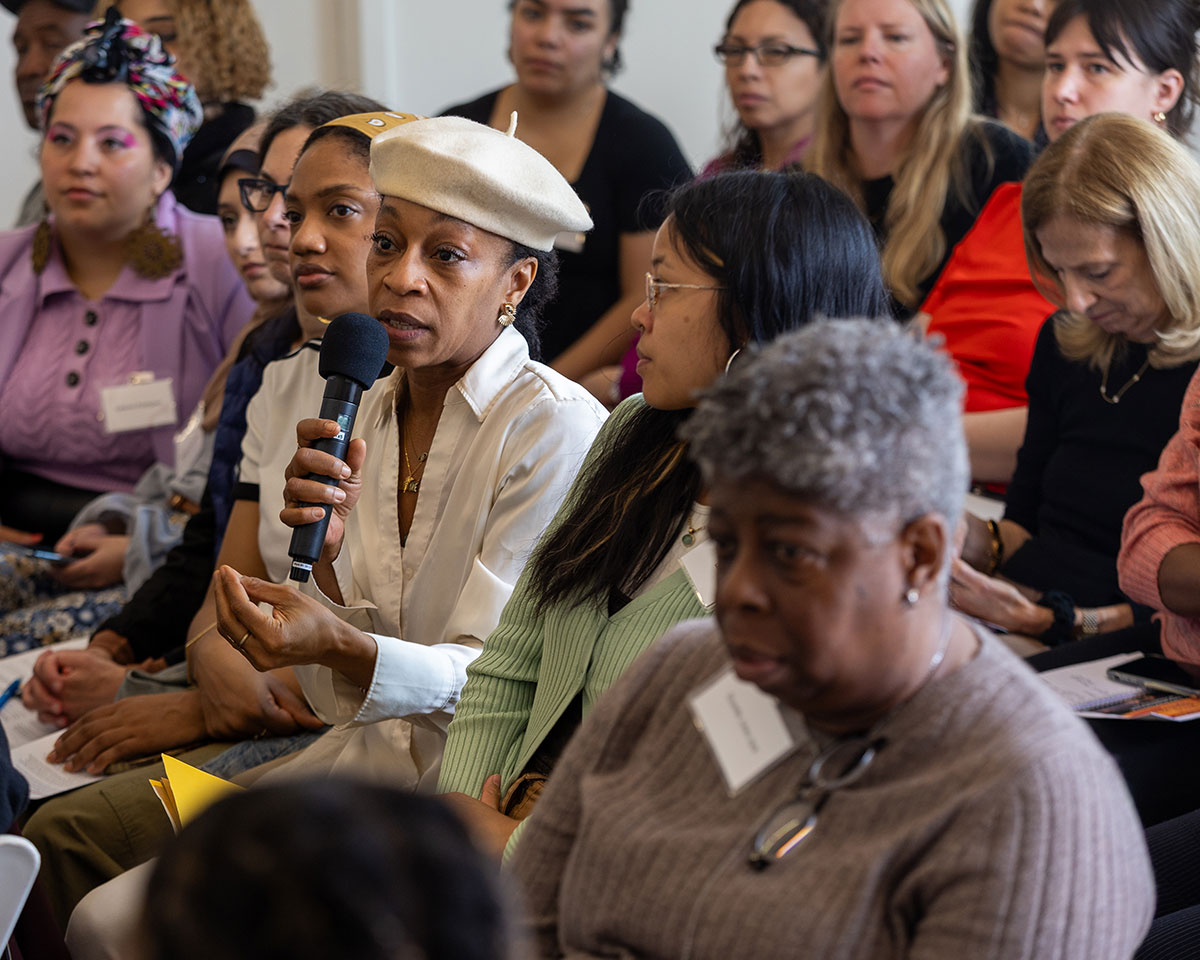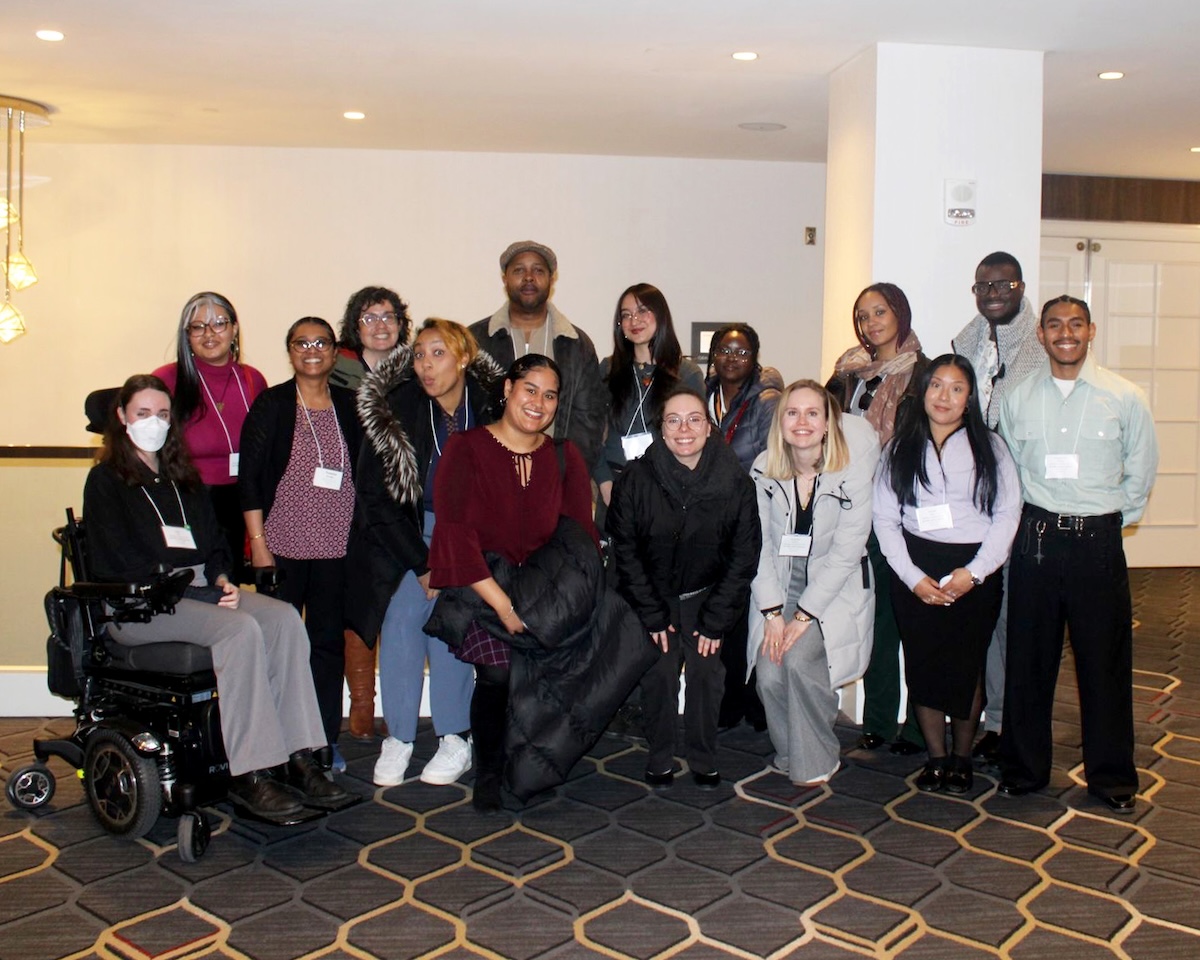Drawing an online audience of hundreds, the iconic director talked about everything from the cultural and historical significance of the new film breaking down barriers, to the challenges of making a musical for the first time.
Serving as an incredible finale to its semester-long cultural and educational series, “West Side Story: The Brooklyn Connection,” the college’s Department of Puerto Rican and Latino Studies (PRLS) welcomed Steven Spielberg for an online lecture on December 8.
Tackling everything from opening doors to the Latin community of artists who helped create the new film, to the challenges of creating a musical for the first time, the conversation with Spielberg was entertaining and timely, offering a glimpse into the mind of the legendary, three-time Academy Award–winning director.
Citing the 32,000 submissions that came in from all over the world for four main roles, Spielberg hoped the 30 Latin performers selected for West Side Story would help open the door for more and serve Latin audiences starving to see themselves represented in films.
“What we hope happens with West Side Story is that door gets kicked open a little wider,” Spielberg said. “No one can say just how wide that door can get kicked open, with a lot of consolidated solidarity among all these communities…who are desperate to show off their culture, their art, what they have to offer as storytellers.”
Spielberg was interviewed by Associate Professor María Pérez y González and Professor Emerita Virginia Sánchez Korrol ‘60 in a wide-ranging discussion that was attended by close to 750 people. Pérez y González and Sánchez Korrol—both former PRLS chairs—were instrumental in creating the West Side Story project that included guest lectures and a three-credit course centered on the 10-time Academy Award–winning 1961 film and its connection to the new film.
“Part of the focus of the NY Latinx Culture and the Arts course was to use an interdisciplinary lens to study the 1961 film by utilizing the resources that the field of Puerto Rican studies made possible over the past 50 years regarding the socio-historic background and reality of the Puerto Rican diaspora in the U.S. and its love-hate relationship with West Side Story,” Pérez y González said. “Because Dr. Sánchez Korrol served as the historical consultant to the new version, we could not pass up this unique opportunity for PRLS students, in particular, and the Brooklyn College/CUNY community to learn how these successful professionals got into the entertainment industry. Or to hear about how they were associated with West Side Story by sharing their experiences and some practical ‘how-to’ tips in terms of process. Students had the opportunity to pose questions directly to the speakers, and to hear what can and should be done to bring Puerto Ricans/Latinxs and people of color into the spaces where they can use their enormous creativity to tell their own authentic stories.”
The new film was produced by Spielberg, Tony Kushner, Kristie Macosko Krieger, Kevin McConnell, and Rita Moreno. Throughout the fall semester, students, as well as Brooklyn College’s extended family, enjoyed other guest lectures, including Kushner (playwright, author, and screenwriter), Bobby Sanabria (multiple Grammy-nominated percussionist, composer, arranger, and producer), and Jeanine Tesori (composer, vocal arranger, conductor, and producer).
“We need an abundance of Puerto Rican and Latinx talent in the film industry and other cultural venues—writers, directors, producers, actors, artists to tell our stories with authenticity and historical accuracy—just as much as we need to widen the doors to the room where decisions about representation are made. Our PRLS lecture series has broken new ground in this mission,” said Sánchez Korrol.
Alexus Knight is studying Africana Studies, History and Art History at Brooklyn College. As someone interested in the arts and who hopes to work in the museums or cultural institutions, she took the West Side Story course to better understand the history of Latin and Caribbean groups in the United States and how that history and activism informs the current cultural contributions and institutions, especially within New York City.
“Professor Pérez y González’s teaching of this course really impacted me to see how West Side Story can be used to explore the relationship between Puerto Rico and the United States and how that translates into our culture, language, music, sociopolitical relationships, and more,” Knight said. “Hearing from Steven Spielberg and others in the West Side Story lecture series helped me better understand the history of producing and building the story of West Side Story from the original 1957 Broadway production to the current 2021 film. For me, each lecture provided a building block to understand West Side Story, its limitations but also its possibilities for understanding Puerto Ricans’ history and experience within the United States.”



